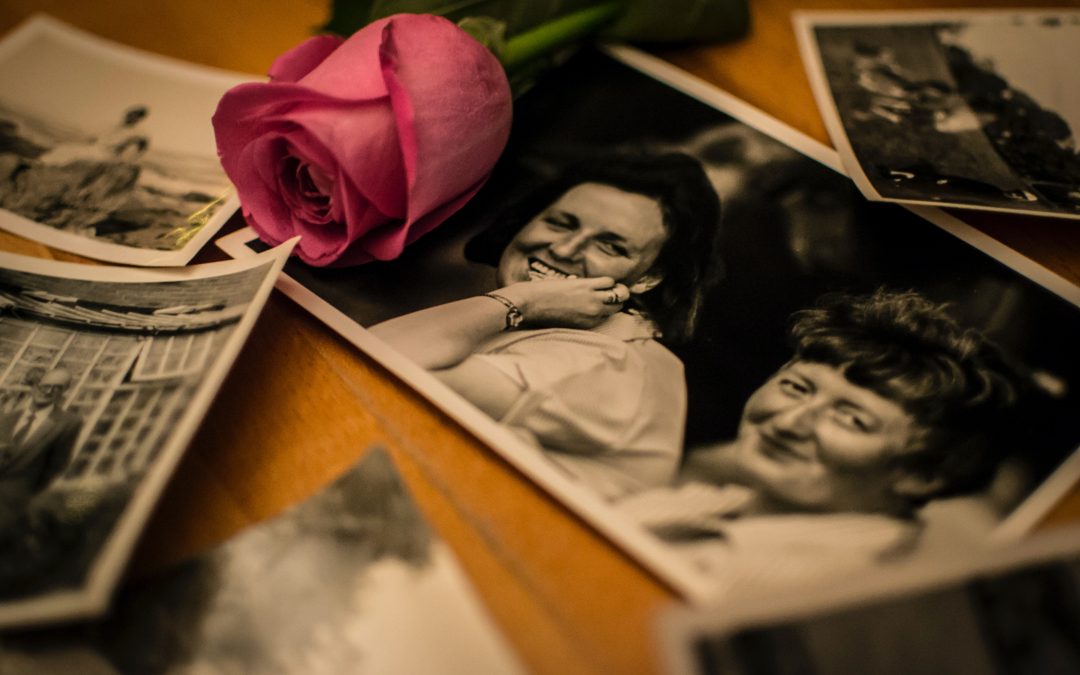Have you ever tried to share a memory with a family member who had no idea what you were talking about—or had a completely different memory of the same situation?
Often women tell me they’d love to write their stories but are afraid to share them for fear that someone will challenge, disagree with, or be offended by their memories.
And the fact is, memories of the same event WILL differ. We internalize our experiences, apply our interpretations, and have an emotional response.
Here’s the good news.
Sharing memories can open the door to a deeper connection with the people who lived through our experiences with us.
For example, I was part of a conversation between two sisters who, through the process of writing down family stories, confessed that they both believed their mother favored the other.
“You were her favorite. She was always delighted whenever you spoke! And I was envious,” said one sister.
“She spent way more time with you!” the other responded. “I noticed, but I don’t think it bothered me.”
They went back and forth on this topic, laughing along the way and concluding that one of their mom’s special qualities was her ability to have a unique relationship with each of them. Sharing this experience helped them appreciate their mom in a new way and understand each other a little better.
Their conversation amused me, and then one day I found myself in a similar discussion – with my daughter . . . who is currently writing a memoir (um . . . DNA?).
My daughter shared one of the stories with me that she’s been working on. It revolves around a recurring conflict we used to have when she was a teenager and would leave her wet towels on the bathroom floor. In my memory, I would ask her to please hang them up (well, ok, I may have left the “please” off after a while). In her version of events, I come across as, shall we say, villainous.
My first reaction when I read her towel story was to correct her. The wet towels might have irritated me, and I might have tried a variety of tactics that did border on nagging, but they never turned me into Cruella de Vil!
However, her story did lead to a deeper discussion. My daughter told me how much guilt and shame she carried about those towels when she was younger, and what a relief it was for her to discover that disorganization was a symptom of her ADHD diagnosis, something I never really understood she suffered with during her teenage years. She felt my compassion when we spoke about it. It was a healing conversation for both of us.
This is my point.
Memory is subjective for everyone, and a lot of memory is interpretation. We all have our interpretations of past events, our versions of the truth.
We form stories based upon our emotional memory of the events.
In some ways, the facts are insignificant. It’s the story we tell ourselves about the situations and events that matter when it comes to life story writing.
For me, the towel story was just one memory of parenting a teenager.
For my daughter, the towel story represented a time she felt misunderstood by her mother.
I’ve learned over time that sharing our memories with open hearts can lead to a deeper understanding of the past, as well as more meaningful connections with the people who lived through the past with us—even when those people hold different emotional interpretations of events.
Of course, sometimes there’s so much distance (emotional, geographical, death) between you and the people from your past that sharing memories isn’t an option.
Other times the memory-sharing may at best result in a truce: agreeing to disagree about the facts.
Regardless, I encourage you to embrace the subjectivity of memory. Every time I do, it frees me up. I can trust my memories because they’re mine. They’re my understanding, my emotional reaction, and my interpretation of what happened.
And embracing the subjectivity of memory helps me accept that other people in my life might hold a different version of events as their truth and opens me up to new perspectives.
If you’re feeling hesitant to share your stories for fear of how others will react, here are
Two tips for navigating the waters of subjective memory:
- Stay curious and open. If it’s important to you to maintain a good relationship with the people who lived your stories with you, share your writing with them and remain open to their reactions and feedback. The resulting conversations will help you both understand that neither of your memories is “wrong”; in the best-case scenario, they will deepen your connection and understanding of one another. And the conversations may help broaden your perspective. You get to choose the interpretation that best serves you.
- Own it. If you’re questioning your memory, if others have disagreed with what you wrote, or if there’s the distance between you and someone you’ve written about, you may choose to admit that in your storytelling. Consider working in a sentence or two about how other people remember scenes or events differently. Rather than discrediting your version of events, your honesty will make you a more trustworthy narrator.
The truth may be subjective, but your right to tell your own stories is absolute.


